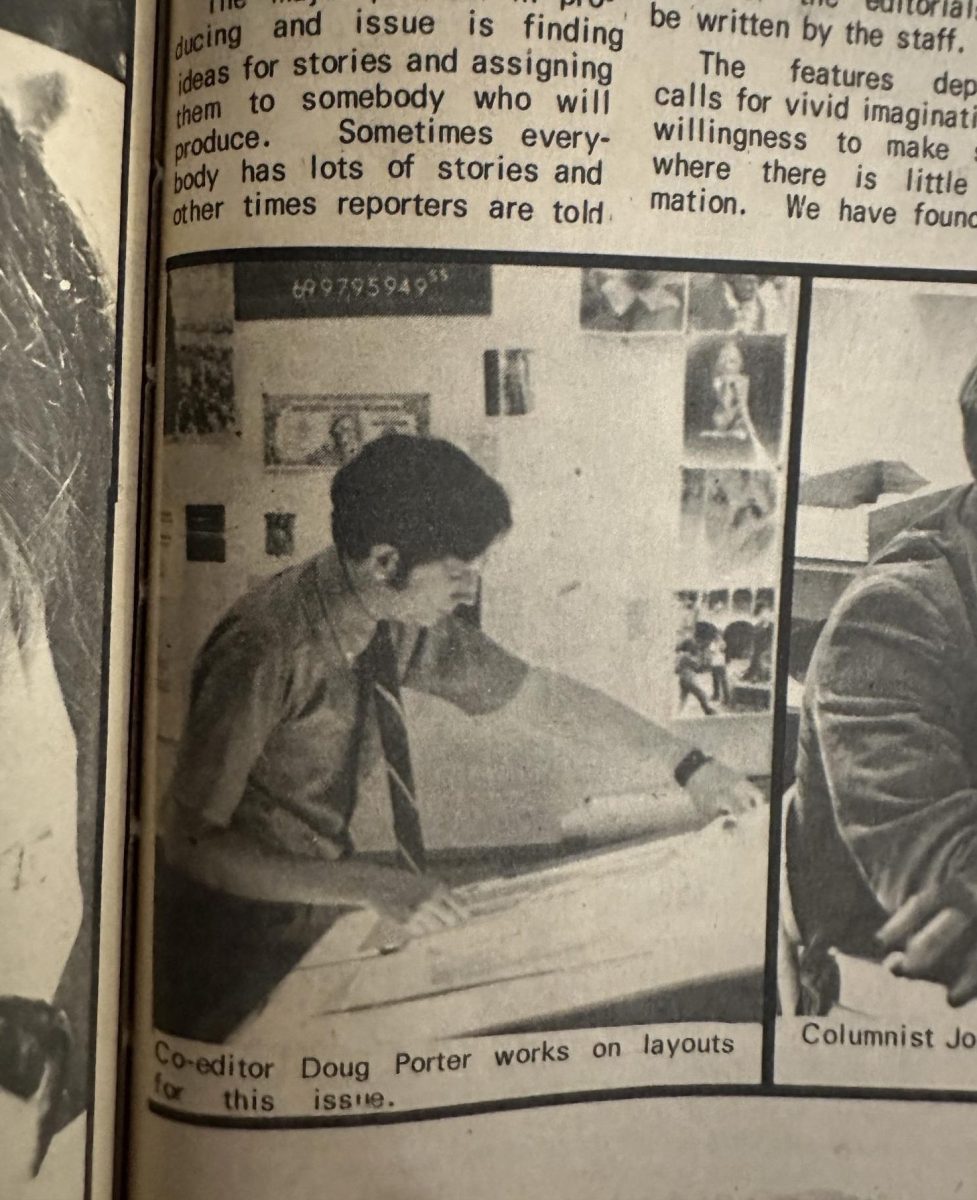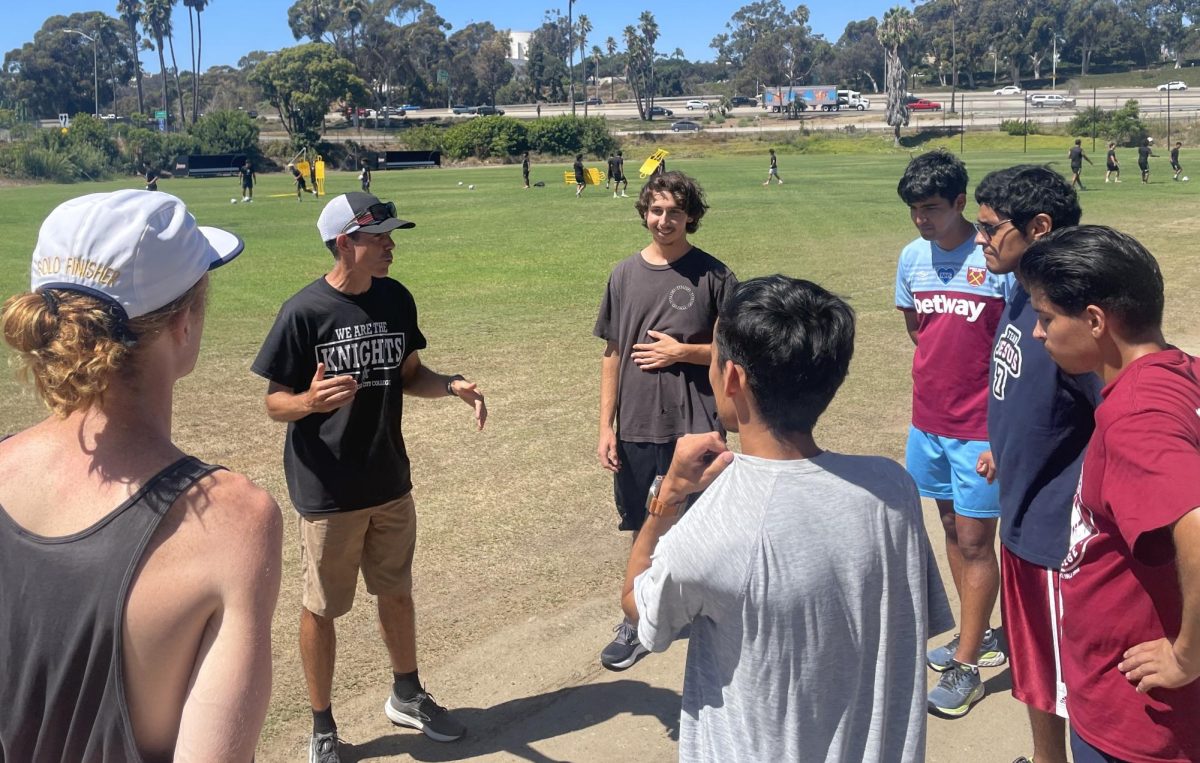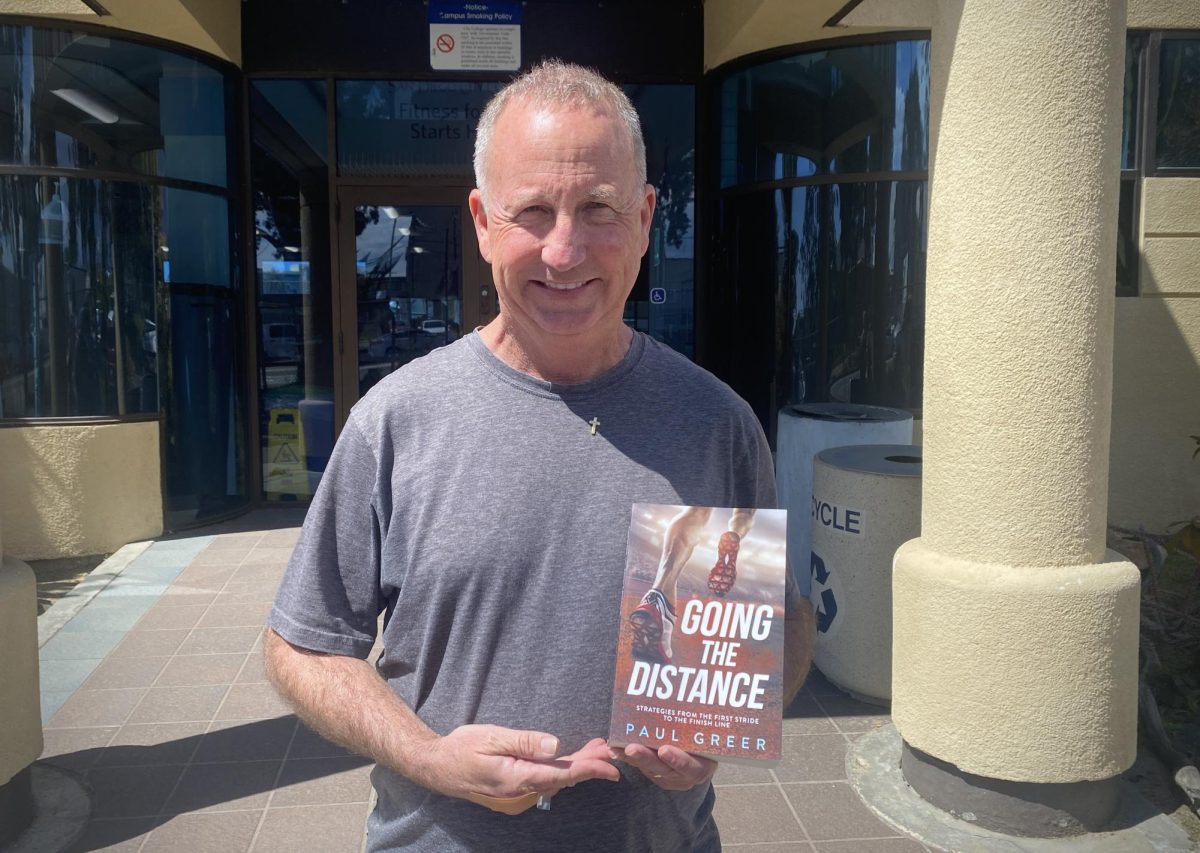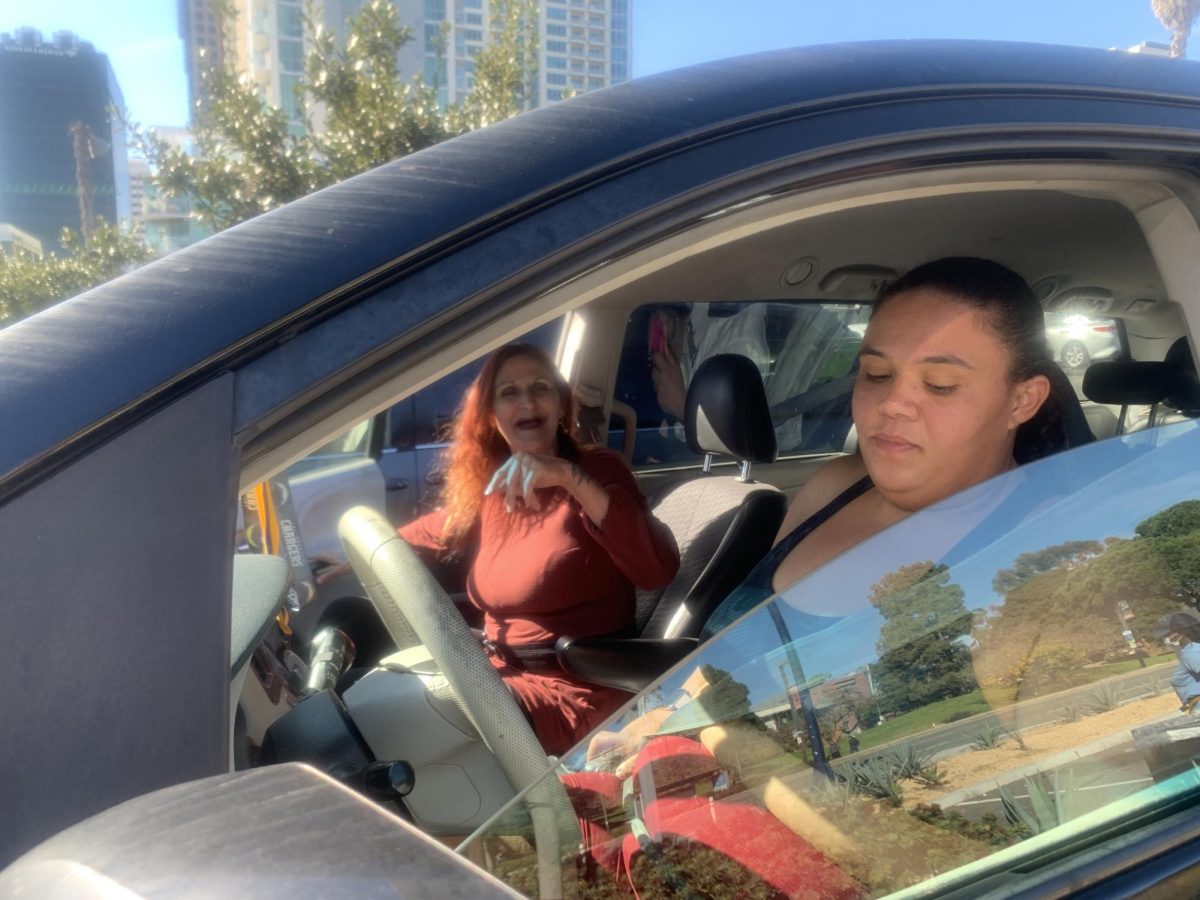In the last event of the Book Fair’s Spring Literary Series, Francisco J. Bustos and Michael Cheno came to City College on Cinco de Mayo to read selected poems from the book they co-wrote “Aqui Estamos…Ya Nos Vamos.”
Virginia Escalante, book fair lecture organizer, states that these authors “write about personal and political issues, including their families, their surroundings, or living on both sides of the border. As professors, they encourage everyone to get an education and stress the importance of reading.”
Both authors graduated from San Diego State, later going on to teach at Southwestern College. Their poems are written in a mixture of English and Spanish, and reflect the issues they faced living on both sides of the border and the struggles their families had to go through as a result. Both men stressed the importance of reading, and of education in general as a way to rise above their circumstances.
Michael Wickert discussed the way poetry saved his life and aided in his recovery from his drug addiction. He says that he began writing during his addiction and wrote the way he thought during that time, in Spanglish. He was able to write his way through his recovery, and stay out of gangs and away from the wrong people in the process. He states that writing ended up being his salvation.
Francisco Bustos remembers his relationship with books beginning very early on, with his parents reading to him. Bustos states that reading allows people to better connect with their thought process and therefore the choices they make. He thinks that children need to meet writers and teachers on a more personal level to be able to see them as models for their own futures.
Both authors’ poems are written about very similar themes, namely their families and the conflict between having pride from where they come from and wanting a safer life for their families. The authors stressed the beauty and sense of close-knit community to be found in Mexico, along with the crime and dangers inherent there. Wickert pointed out that 73 percent of prisoners and those on probation are Hispanic, 68 percent of them with less than a ninth grade education, making their message on the importance of education even more pressing to the youth of today.







